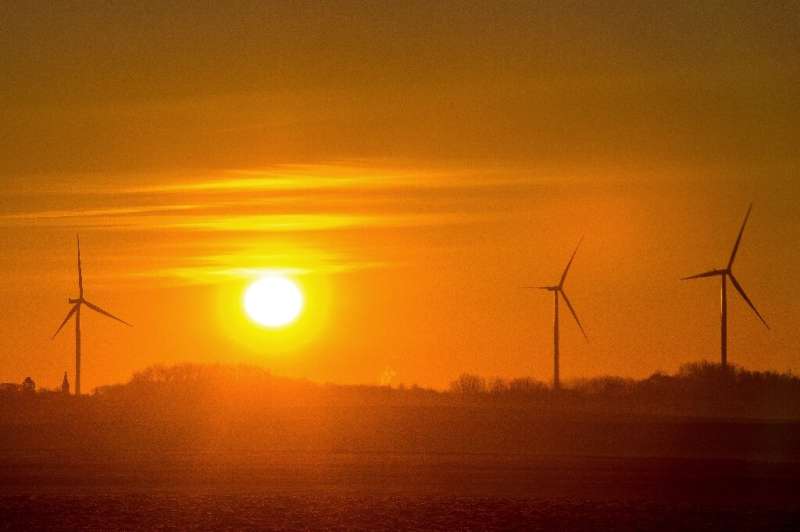Climate warming forecasts may be too rosy: study

UN projections of how much current climate policies and national pledges to cut carbon pollution will slow global warming are more uncertain than widely assumed, researchers reported Monday.
Leading into this month’s COP26 summit, the UN said existing policies would see Earth’s average surface temperature rise a “catastrophic” 2.7 degrees Celsius above preindustrial levels by 2100.
Renewed pledges from large emitters such as India would have a negligible effect on warming this century, the UN said during COP26, and were still worlds away from the Paris Agreement temperature goal of 1.5C of warming.
But the apparent precision of these estimates is misleading, according to a new study, written by several contributors to the UN reports it calls into question.
“The false precision to climate outcomes given during COP26 may lead countries to believe they are making good progress, when the opposite may be true,” said first author Ida Sognnaes, a senior scientist at the CICERO climate research centre in Olso.
At issue is the standard method used to connect the dots between a set of climate policies and the end-of-century temperature increases they might lead to.
Most climate projections are based on models that start with the desired temperature outcome –- a cap on global warming of 1.5C or 2C, for example -– and then work backwards to see what policy levers need to be pulled in order to get there.
In this “backcasting” approach, experts adjust variables such as coal use, renewables and afforestation to hit the end-of-century target.
“Our study is a ‘forecast’,” said CICERO’s director of research Glen Peters. “We model out where existing policies take us and then see where we end up.”
Seven different climate modelling groups used this technique to assess how voluntary pledges under the Paris treaty running to 2030—known as nationally determined contributions—would play out by 2100.
Unrealistic scenarios
Their estimates, published in Nature Climate Change, ranged from 2.2C to 2.9C, roughly in line with the UN figures.
What stood out, however, was the lack of certainty.
“If you take the low end of that range, it may sound like we are really close to meeting the Paris goals,” Peters told AFP.
“But it is equally likely that the outcome could be up around 3C, in which case much stronger policies would be needed.”
Peters compared the new study’s methods to those used to measure the impact of COVID policies such as mask wearing, social distancing or vaccination.
Since the outbreak of the pandemic in early 2020, COVID modelling has been updated every few months based on how policy is seen to be affecting the spread of the virus.
“New policy is based on where we are actually heading, not where we may have been heading if there was no action taken,” Peters said.
Most studies on global warming impacts contrast a worst-case scenario of unabated carbon emissions, on the one hand, with aggressively optimistic pathways to a 1.5C world on the other.
The reality, however, is somewhere in between these extremes, and is likely to stay there for decades.
“We are filling a gap in the literature, and putting our money where our mouth is,” Peters explained.
New emissions pledges barely affect global heating: UN
Ida Sognnaes, A multi-model analysis of long-term emissions and warming implications of current mitigation efforts, Nature Climate Change (2021). DOI: 10.1038/s41558-021-01206-3. www.nature.com/articles/s41558-021-01206-3
© 2021 AFP
Citation:
Climate warming forecasts may be too rosy: study (2021, November 22)
retrieved 22 November 2021
from https://phys.org/news/2021-11-climate-rosy.html
This document is subject to copyright. Apart from any fair dealing for the purpose of private study or research, no
part may be reproduced without the written permission. The content is provided for information purposes only.
For all the latest Science News Click Here
For the latest news and updates, follow us on Google News.

